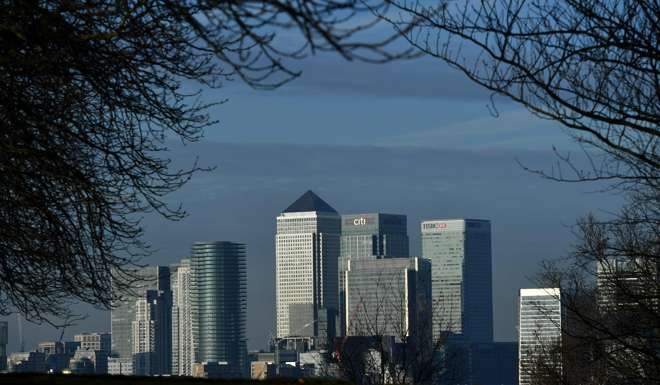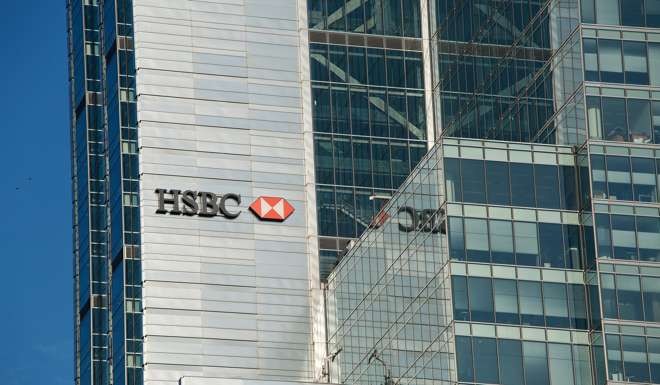
Banks welcome UK Brexit plan but eye relocating from London anyway
Finance firms welcomed Prime Minister Theresa May’s pledge to deliver a “phased approach” to the UK’s withdrawal from the European Union’s single market even as they said they were preparing for the worst.
“We do not seek membership of the single market,“ May said in a speech in London on Tuesday. “Instead we seek the greatest possible access to it through a new, comprehensive, bold and ambitious free trade agreement.”
While May promised to fight for a transitional period that would allow financial-services firms time to adjust to whatever new trade deal is agreed with the EU -- a key industry demand -- there are no guarantees she will be successful.
Absent of firm assurances that their rights to sell services freely around the EU from London will be protected, banks have said they will start the process of moving operations into Europe within weeks of the government triggering Brexit talks.

“If you don’t know where you are going, you have to plan for the worst and execute faster,“ HSBC Holdings Plc Chairman Douglas Flint said earlier Tuesday. ”This isn’t rocket science.”
Laying out the government’s Brexit plans with 12 core objectives, May said that she was confident a deal could be reached with the EU once the trigger to leave is pulled by the end of March. She called for “a smooth and orderly Brexit.”
“You have to work out where you are going and you have to plan for the worst and hope for the best“
“We support the phased approach outlined today that would allow businesses time to adjust to a new deal at the end of the Article 50 period,” TheCityUK Chief Executive Officer Miles Celic said in a statement. “Ensuring sufficient time for highly regulated industries such as UK-based financial and related professional services to do this will be key.”
Financial services firms may derive some comfort from May’s assurances around transitional arrangements and selective access to the single market for certain industries, according to Caroline Meinertz, regulatory partner at Clifford Chance. “The real question now is whether firms will match the prime minister’s optimism that such goals are achievable, and how long they can risk waiting for more concrete assurances.”
Much will “remain uncertain for some time despite the 12 point plan,” said Mark Peters, a managing director at London-based consulting firm Protiviti. “There remains significant unknown risks and threats to an organisation’s business objectives, financial management and its business operating model.”

Reacting to May’s comments, Morgan Stanley executives said on a call with analysts they will likely have to set up a new headquarters somewhere in continental Europe to comply with the new rules. In June, Morgan Stanley President Colm Kelleher said that would most likely be Dublin or Frankfurt.
Speaking earlier on Tuesday, Aberdeen Asset Management CEO Martin Gilbert said it was time for banks to decide whether they were going to move to Dublin, Paris or Frankfurt.
“You have to work out where you are going and you have to plan for the worst and hope for the best,“ Gilbert said.
There’s little doubt the decision to break from the single market is bad news for the City, and for the U.K., said Blair Adams, a partner with DMH Stallard, a London-based law firm that represents hedge funds and other investment companies.
“The harder the Brexit, the faster and stronger the erosion of London’s position as a financial services centre,” Adams said.

